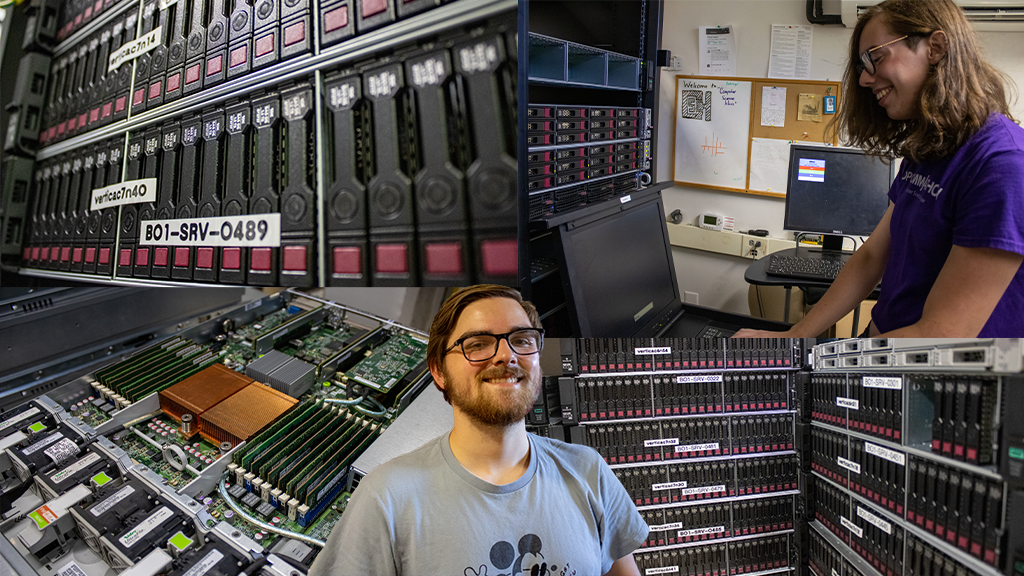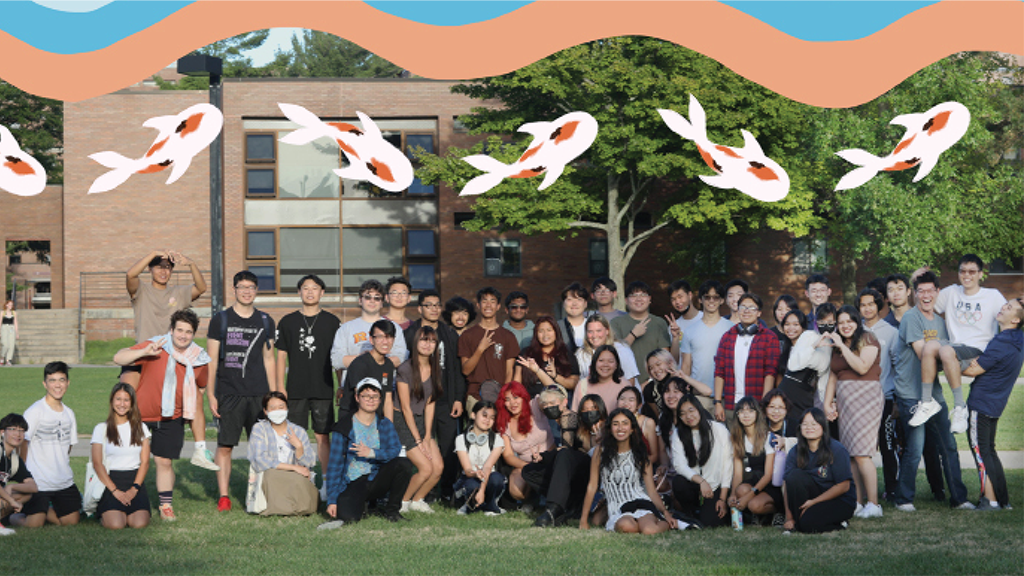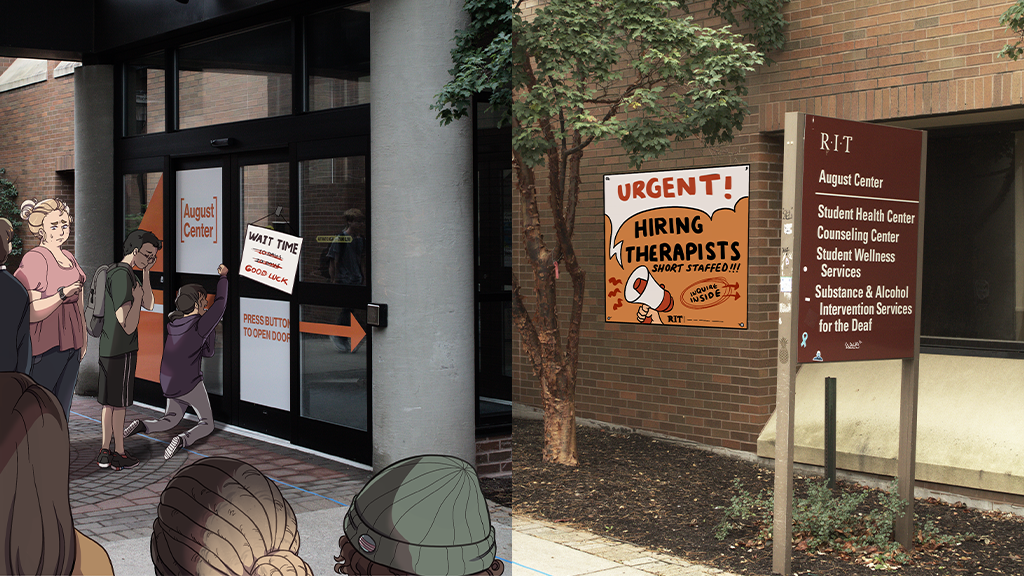Since 1976, Nathaniel Rochester Hall’s third floor has housed a diverse roster of projects and work rooms, all the labor of a community of students from a wide range of majors and experience levels. This is RIT’s Computer Science House (CSH), one of the few different Special Interest Housing floors on campus.
Both on-floor and off-floor members are intimately familiar with their enterprises. Nearly everything on this otherwise typical row of RIT dorm rooms is built or modified, including drink machines, doorbells, lounges and an internal network-switching system.
Details of the Donation
This past July, CSH received a large donation thanks to in large part from an alumnus with a connection at Wayfair LLC. The contribution, which came after the company liquidated one of its server farms and outsourced several of its data center to Google, provided CSH with over $800,000 worth of server equipment, cabling and hard drives.
An on-floor official secured the donation for CSH back in May 2022. What started as a simple Facebook post scouting for used hardware became a running conversation between CSH and their contact at Wayfair. The company’s servers, which were originally utilized for off-site cloud storage, eventually fell into the possession of a number of university groups, including RIT’s CSH.
New Hardware
Right now, the House’s on-floor server room is equipped with various machines running on a row of server racks. Some of these servers are maintained by CSH, but the majority were created and programmed by individual members.
CSH members have a habit of hosting their own servers using a large virtual machine cluster, an essential tool for any educational group that teaches networking, computing or systems administration. Members can create anything from obscure video games to media servers and web services. Such a device requires intensive computing power that becomes much easier for CSH to provide with the acquired hardware.
Mary Strodl, a CSH systems administrator, explained how this practice influences the house’s culture. “There’s a lot of…internal stuff that makes an ecosystem for members.”
CSH members access these tools, in part, to create virtual machines, allowing them to develop their knowledge of computer science.
She added, “I think that’s the biggest thing—giving people the resources to play around with expensive…and powerful hardware.”
The Future in the Community
RIT Links is a convenient hub to quickly view and navigate the various RIT websites students use daily.
“And yes, we want to host more game servers,” added McDade.
CSH has garnered a reputation for hosting video game servers, which are enjoyed by students and off-campus players alike. The RIT Counter Strike: Global Offensive server, for instance, ran for well over five years and was frequently visited by international players.
The overall scale of the contribution is quite large. “We received 1.2 petabytes of hard drive storage,” estimated McDade. That is equivalent to 1.2 million gigabytes, or about the equivalent storage of 4000 average consumer laptops.
McDade then discussed existing backups on CSH servers. “Our main storage cluster has 300 terabytes of available storage and triple redundancy … so we have 900 terabytes in use right now as triple redundant storage.” This easily doubles the existing storage capabilities for more backups, programs, services, and other projects.
CSH has been a diligent and creative aggregate of the student body for many years, and the group is poised to further its stature as a key participant in RIT’s community.
“We would also like to open the door to hosting student websites and offer computing to others on campus,” McDade said.
The house’s servers already host websites for various student organizations and Special Interest Houses, including the House of General Science and Art House.
“If there are students or faculty that want to host something or use our computers, we can facilitate that,” added McDade. “[The house] has a dedicated team of [systems administrators] willing to help with getting a website up and running on our servers.”
McDade also explained that the new hardware allows the house to retire its older computers. CSH has already begun to reach out to local organizations with a known need for hardware.
“All of our old hardware came to us in previous donations…some from the [University of Rochester] Laser Energetics Lab, and some from LinkedIn. These machines have served us well for a number of years and hopefully will do the same for others.”
“I think that’s the biggest thing—giving people the resources to play around with expensive…and powerful hardware.”
“If there are students or faculty that want to host something or use our computers, we can facilitate that.”




